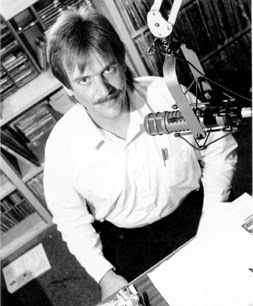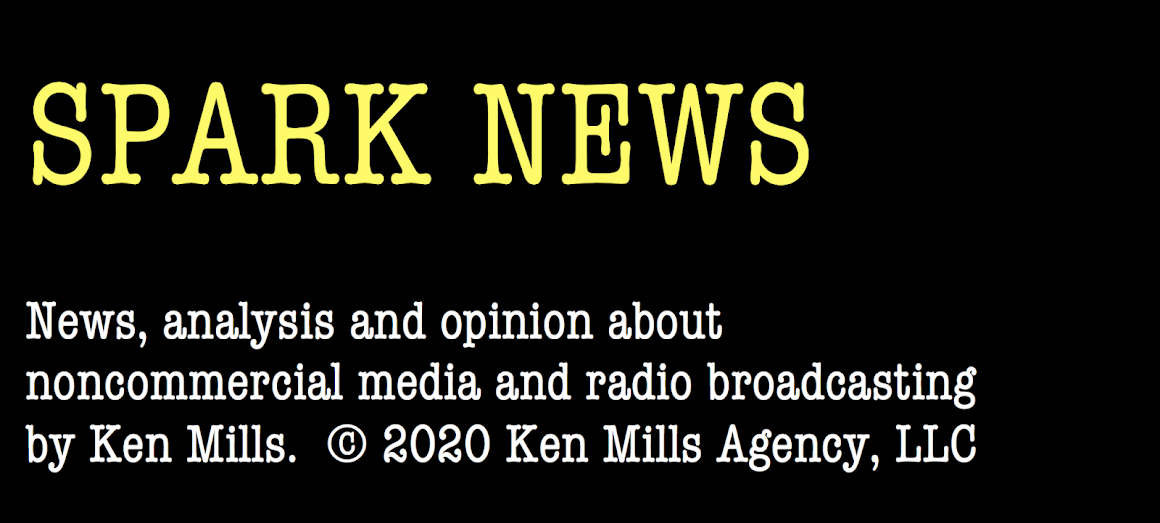Last
October we reported on a nasty feud between two college media organizations
over noncom royalty fees paid to SoundExchange for online music streaming.
Intercollegiate Broadcasting Systems (IBS) complained about a new fee structure
approved by the competing College Broadcasts Incorporated (CBI).
IBS
filed suit to nullify the $500 minimum annual fee for college radio
broadcasters and webcasters. IBS felt
that when CBI agreed to the $500 fee, they and SoundExchamge set a defacto price for all college
broadcasters at the expense of IBS members.
CBI was not involved in the lawsuit but they were the likely target. IBS said in its suit the $500 fee was
too high and the way is was determined was improper.
The
D.C. Circuit on Tuesday 8/14/15 upheld the $500 minimum annual fee for college
radio broadcasters and webcasters, finding that IBS had failed to show any
impropriety in setting the rate.
The
Court held that the $500 minimum fee itself wasn’t arbitrary, capricious or
excessive. IBS was pushing for a $20 minimum fee for “very small”
broadcasters. Here is our earlier post:
Originally published: Thursday, October
23, 2014
A
pending settlement reached earlier this month [October 2014] between College
Broadcasters, Incorporated (CBI) and SoundExchange doesn’t sit well with Fritz
Kass, CEO of rival organization Intercollegiate Broadcasting Service (IBS).
In
a recent e-mail, Kass alleged:
 |
| FRITZ KASS • IBS |
It is quite possible that SoundExchange makes, has made, payments to
CBI, which in turn help fund the CBI Executive Director [Will Robedee], and
perhaps others. CBI and CBI's Executive Director may have a personal stake in
the outcome of these proceedings.
CBI
reached the proposed settlement with SoundExchange that, if ratified, will keep
royalties CBI member stations pay for online steaming rights the same as
current rates for the next five years. The agreement sets the annual cost for
CBI’s members at $500.00 per year, plus a $100.00 fee as a proxy for not
reporting certain performance broadcasts.
IBS could have reached a similar agreement with SoundExchange but Kass protested saying $500.00 is too high for IBS members. The two organizations compete for members. CBI’s agreement with SoundExchange may increase the perceived value of CBI membership. Kass says the CBI agreement could affect all noncommercial broadcasters:
[SoundExchange] by agreement with CBI has established a "market place" noncommercial rate of $600 per stream. If the CBI becomes the noncommercial standard, as SoundExchange has proposed, then [fees paid by other noncom broadcasters] would more than double per stream.
IBS could have reached a similar agreement with SoundExchange but Kass protested saying $500.00 is too high for IBS members. The two organizations compete for members. CBI’s agreement with SoundExchange may increase the perceived value of CBI membership. Kass says the CBI agreement could affect all noncommercial broadcasters:
[SoundExchange] by agreement with CBI has established a "market place" noncommercial rate of $600 per stream. If the CBI becomes the noncommercial standard, as SoundExchange has proposed, then [fees paid by other noncom broadcasters] would more than double per stream.
 |
| WILL ROBEDEE • CBI |
CBI
and IBS are small organizations that rely on membership fees and revenue from
conferences. Annual revenue for CBI in
2012, according to filings with the IRS, was around $72,000. IBS reported
annual revenue for 2013 of around $55,000. Both organizations rely on
volunteers, though CBI does pay part time Executive Director Robedee.
Relations
are not warm between Robedee and Kass. In an October 15, 2014 email, Kass said:
I am in no way connected
financially to either the broadcast or music industry. I have no stake
personally in the outcome of setting webcasting rates. That is not true of the
Executive Director of CBI [Will Robedee], who according to his sworn testimony,
is paid by CBI. There may be other recent payments from SoundExchange to CBI
for conference exhibit/sponsor fees, etc. It is quite possible that
SoundExchange makes, has made, payments to CBI, which in turn help fund the CBI
Executive Director, and perhaps others. CBI and CBI's Executive Director may
have a personal stake in the outcome of these proceedings.
Robedee
declined to comment on the statement by Kass.
SoundExchange
is a 501c6 organization entrusted by the Copyright Royalty Board
to collect and distribute digital performance royalties from noncommercial
broadcasters and webcasters. SoundExchange currently has agreements with
several organizations: the Corporation for Public Broadcasting, on behalf of
NPR, APM, PRI and PRX, the National Federation of Community Broadcasters
(NFCB), and the National Religious Broadcasters (NRB). IBS, as well as other
noncom organizations, are involved in litigation with the Copyright Royalty
Board over rates and terms for 2016 – 2020.
IBS won a recent DC Circuit Court case challenging the constitutionality of the Copyright Royalty Board’s decision process. Representatives of CBI and IBS declined to comment on the litigation. IBS is involved, and has been involved, in litigation before the US Court of Appeals (DC Circuit) since May 2007 over the $500 minimum performance royalty rate ordered by the CRB for all commercial and noncommercial web streams.
IBS won a recent DC Circuit Court case challenging the constitutionality of the Copyright Royalty Board’s decision process. Representatives of CBI and IBS declined to comment on the litigation. IBS is involved, and has been involved, in litigation before the US Court of Appeals (DC Circuit) since May 2007 over the $500 minimum performance royalty rate ordered by the CRB for all commercial and noncommercial web streams.





